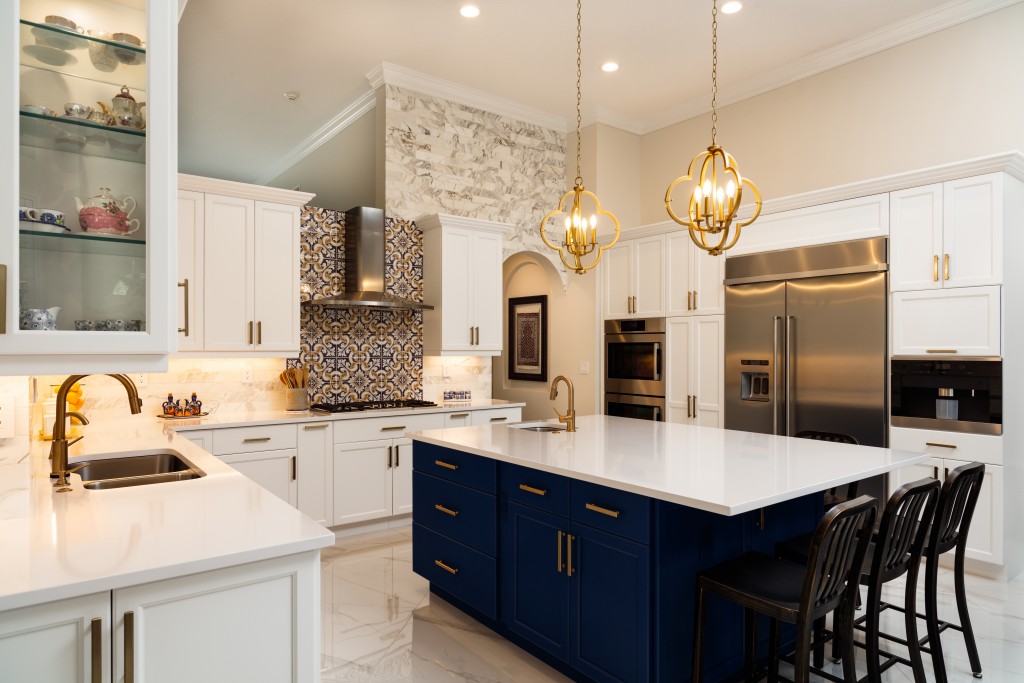Concrete, the unassuming and widely used material for foundations, is an excellent alternative to standard countertop materials. Whether you have an industrial-style, traditional, or contemporary kitchen, there’s a way to make concrete work for the look and feel of your kitchen.
If you’re building a new kitchen or remodeling an existing one, here’s some essential information on concrete countertops to decide if it’s appropriate for you.
What Exactly is Concrete?
Concrete is made up of a binder, water and filler. Cement is the binder, more specifically Portland cement, fly ash or slag cement. The filler is an aggregate that could be anything from stone to gravel, sand and crushed beads or glass.
You can choose from concrete countertops that can be cast on-site or precast and then installed in your kitchen.
Is There Such as Thing as Colored Concrete Countertops?
Yes, and it’s created through one of three distinct processes. One is through internal pigment, which is basically a colored powder combined with wet concrete. With this process, the entire concrete countertop will be permanently colored, and you have limitless color options to choose from.
The second process is through a liquid dye that can only penetrate the concrete’s topmost layer. The dye comes in various colors, but note that some dyes aren’t UV-stable. The third process is through acid staining.
While the results are less predictable, and the color options more limited than dyes or internal pigments, the end result is usually more interesting due to the metallic salts reacting with the properties of concrete.
What About Maintenance?

Similar to other countertop materials, a clean rag or cloth and mild soap or cleanser will suffice for daily cleanup, and as much as possible; avoid harsh cleansers. It is crucial to keep in mind, however, that the lifespan and maintenance requirements of your concrete countertop will greatly depend on using the right concrete sealer.
You can choose between a topical or penetrating sealer. With a penetrating sealer, it will penetrate into the concrete and will be barely noticeable once completely dry. And while it won’t safeguard the concrete from spills, it will help stop the spill from penetrating.
Because of this, there’s a chance that spills could leave a permanent mark or stain. Topical sealers, on the other hand, like epoxy, urethane, and wax coat the concrete’s surface and differ in their performance and appearance. Acrylic sealers perform and look relatively well but are susceptible to cracks.
Wax looks excellent but doesn’t really “seal” well. Urethane and epoxy sealants are glossy, thick, and functions the same as epoxy floor sealers.
A Crucial Note on Sealers
Take note that although concrete is virtually indestructible, concrete sealers are not. That being said, finding the right epoxy floor sealers for the concrete counters in your Utah home is immensely vital. However, proper care of your counters – using trivets and cutting boards, water and mild cleanser for cleaning – can help prolong your counters’ service life.
From refined to industrial chic, concrete countertops are becoming increasingly popular in home kitchens. So keep the information above in mind when deciding on a countertop material for your kitchen.
